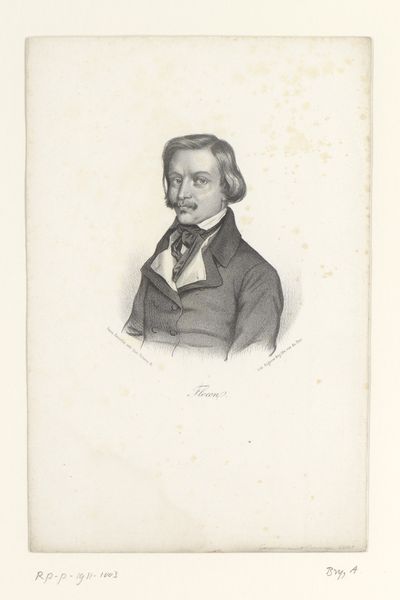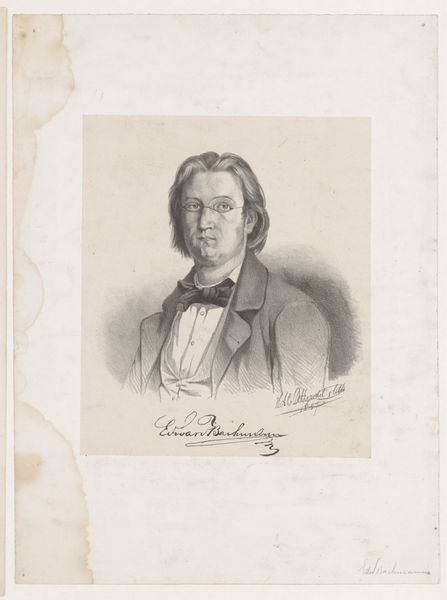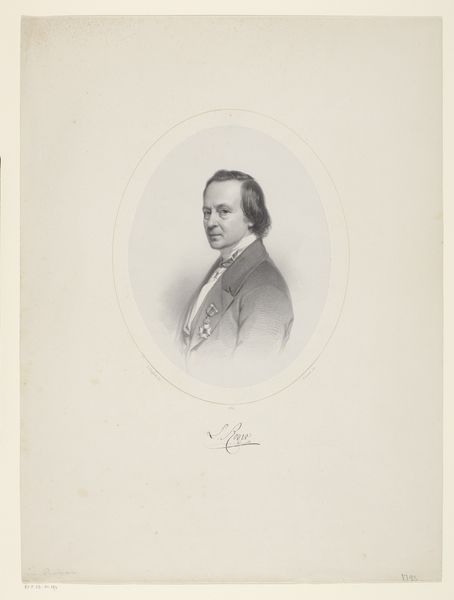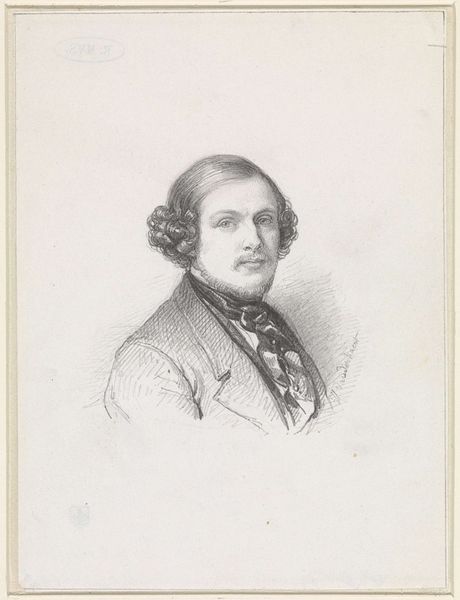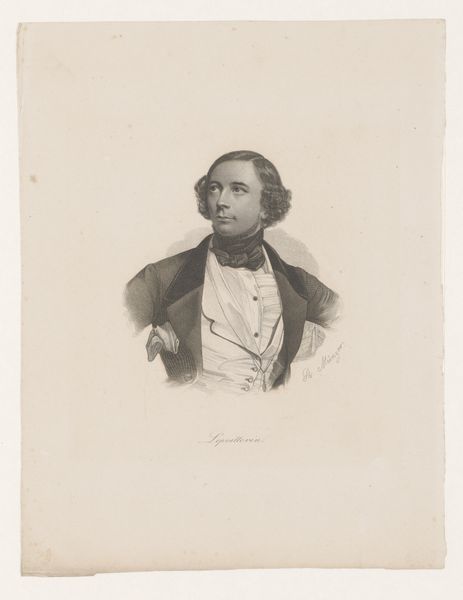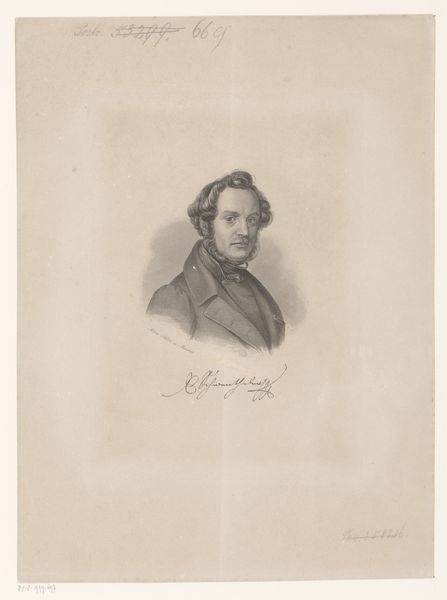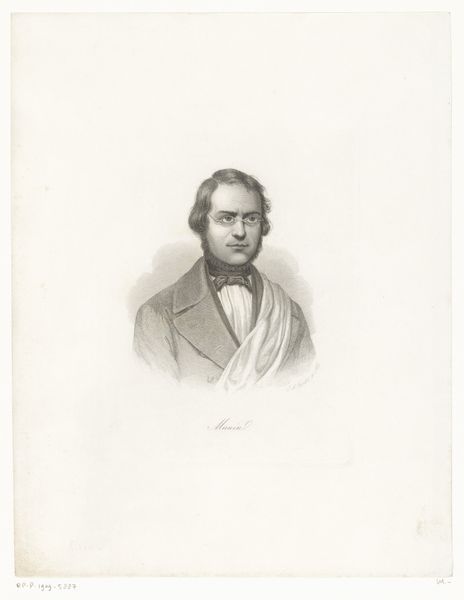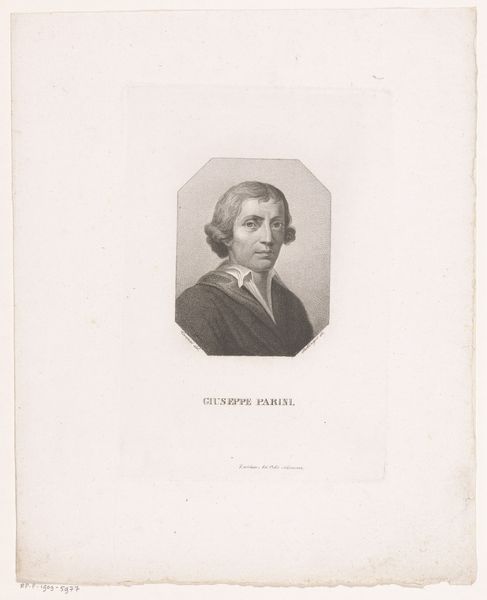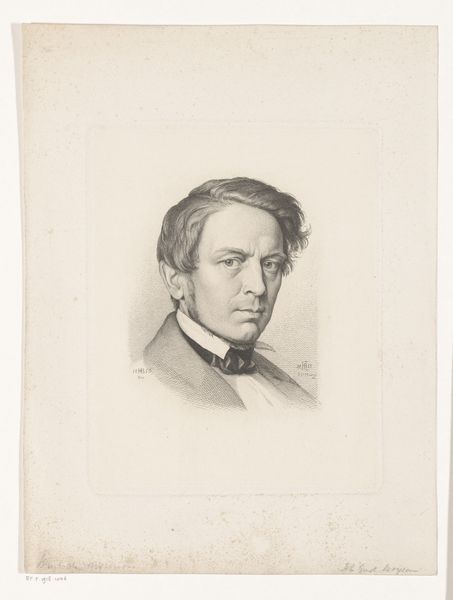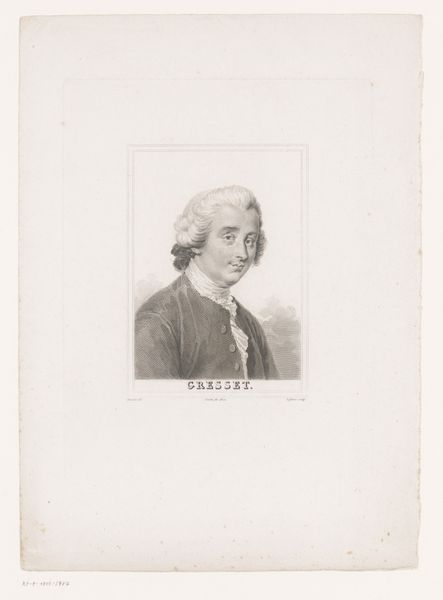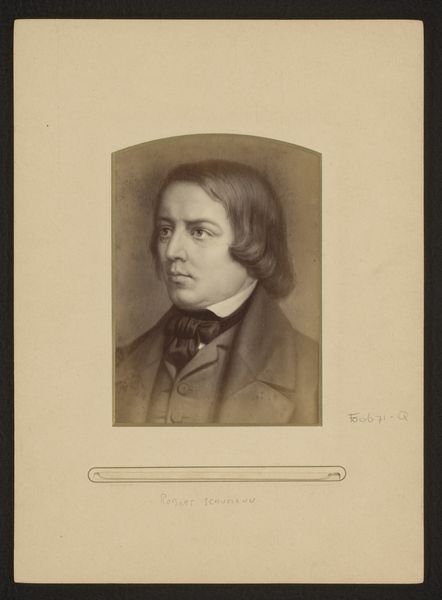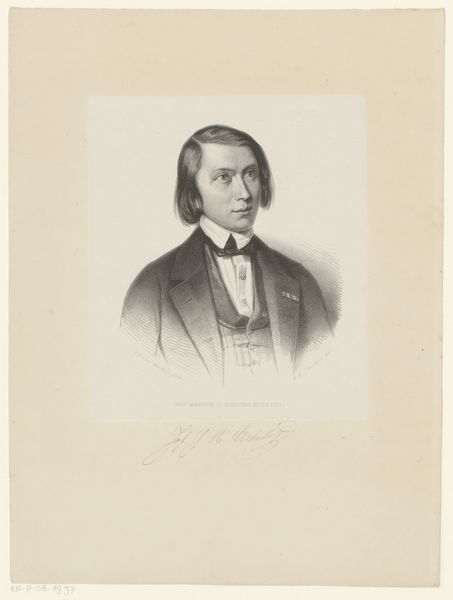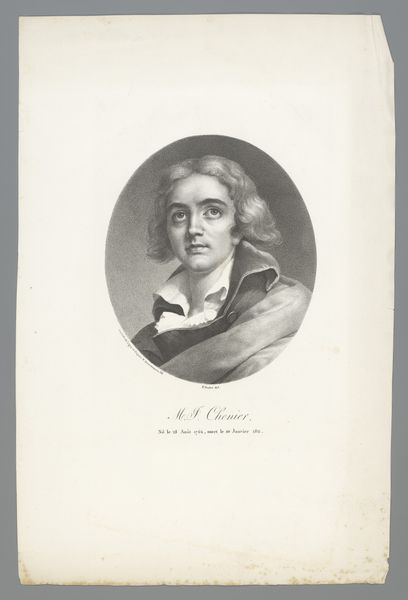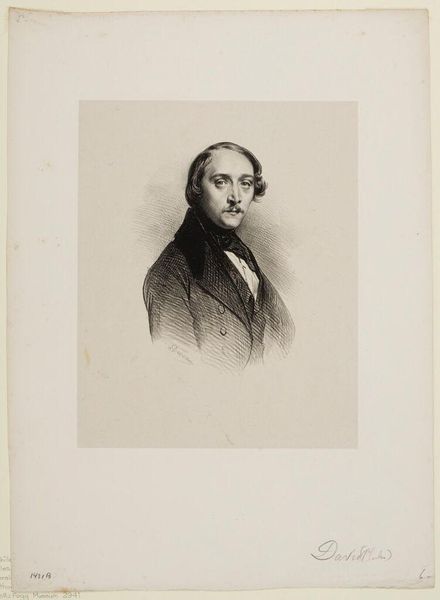
drawing, pencil
#
portrait
#
pencil drawn
#
drawing
#
light pencil work
#
pencil sketch
#
pencil drawing
#
romanticism
#
pencil
#
portrait drawing
Dimensions: height 500 mm, width 374 mm
Copyright: Rijks Museum: Open Domain
Evert Slaghek created this portrait of Charles van Beveren using lithography, a printmaking technique that democratized image production in the 19th century. Lithography depends on the chemical repulsion between oil and water. The artist draws on a stone or metal plate with a greasy crayon, then applies water. Ink adheres only to the greasy areas, allowing for a print. Look closely and you’ll see the subtle texture of the crayon strokes, giving the image a soft, almost photographic quality. The process allowed for relatively quick and inexpensive reproduction, making images like this accessible to a wider audience. It speaks to the rise of a middle class, eager to consume portraits and other printed materials. This wasn't just art; it was a commodity, produced through a blend of artistic skill and industrial efficiency. By understanding the lithographic process, we can appreciate how printmaking technologies transformed both art and society.
Comments
No comments
Be the first to comment and join the conversation on the ultimate creative platform.
